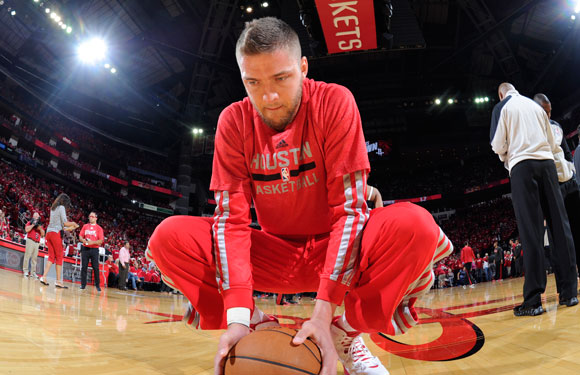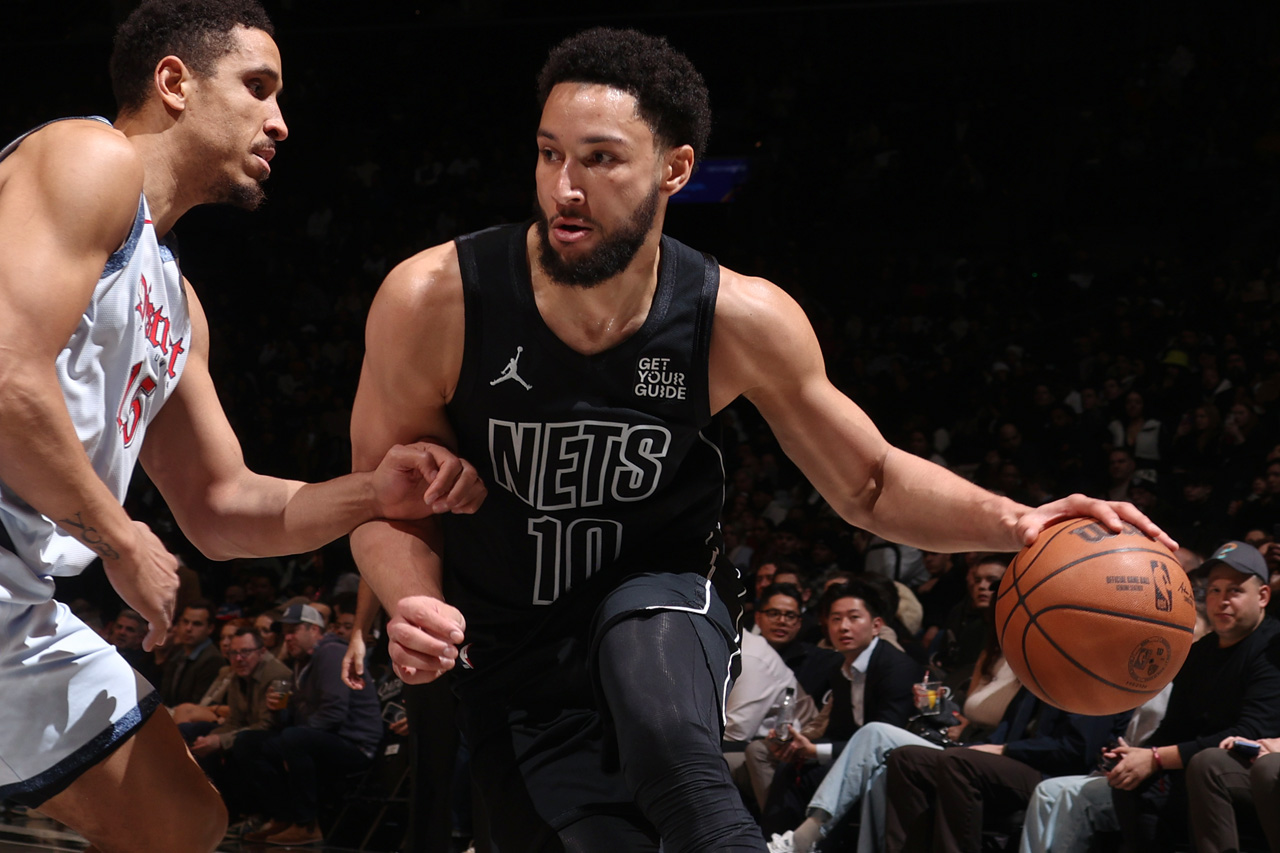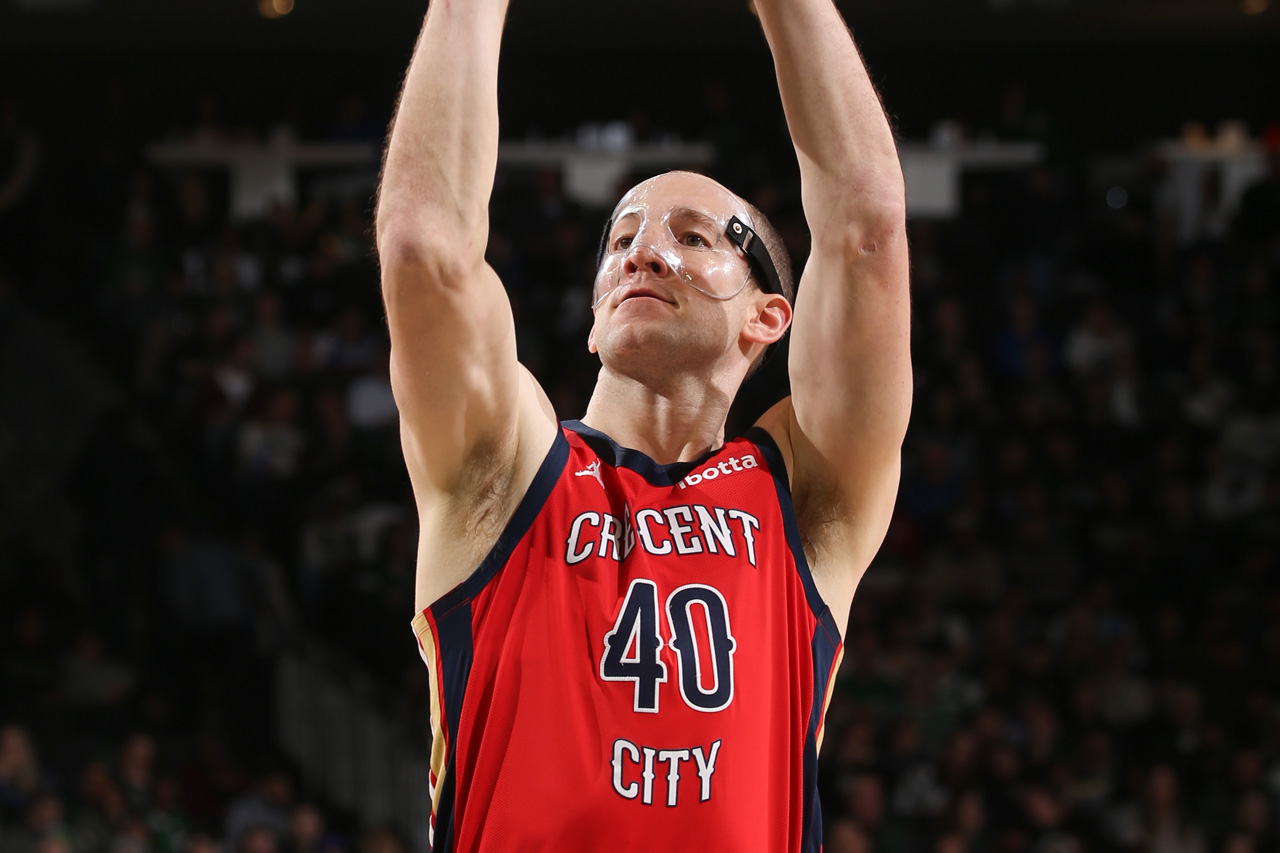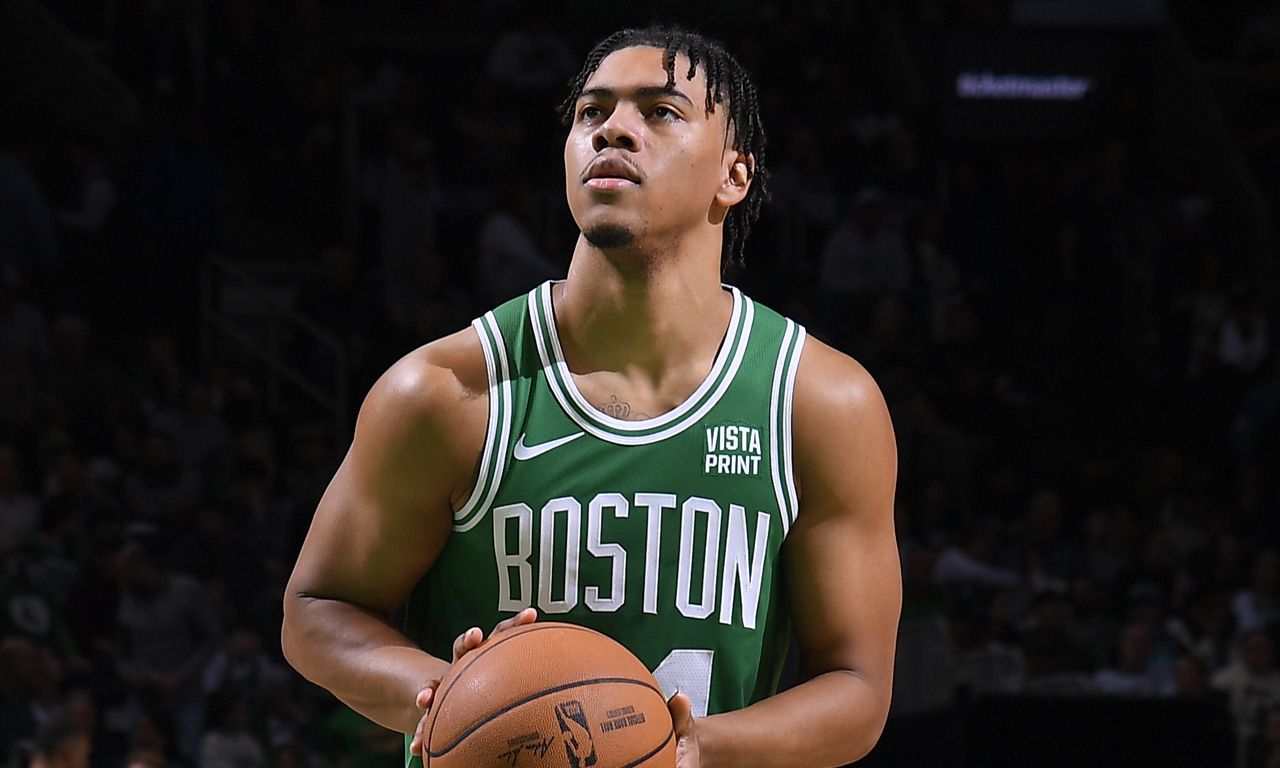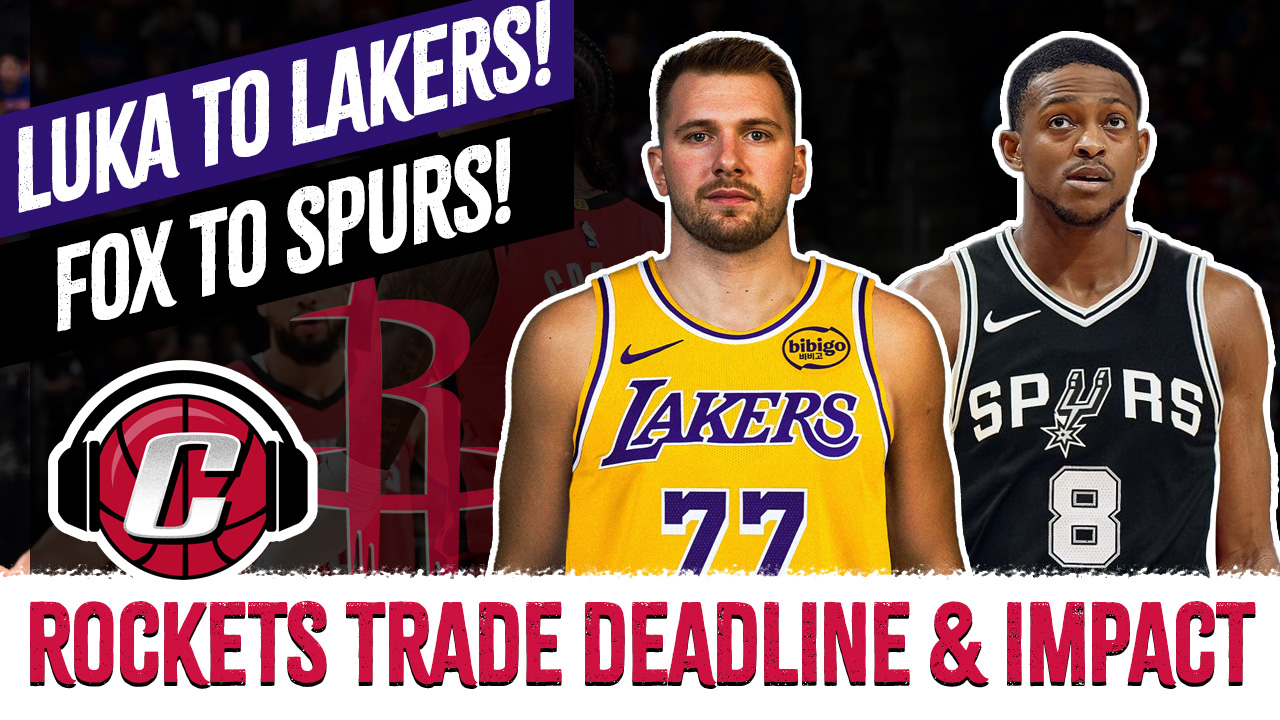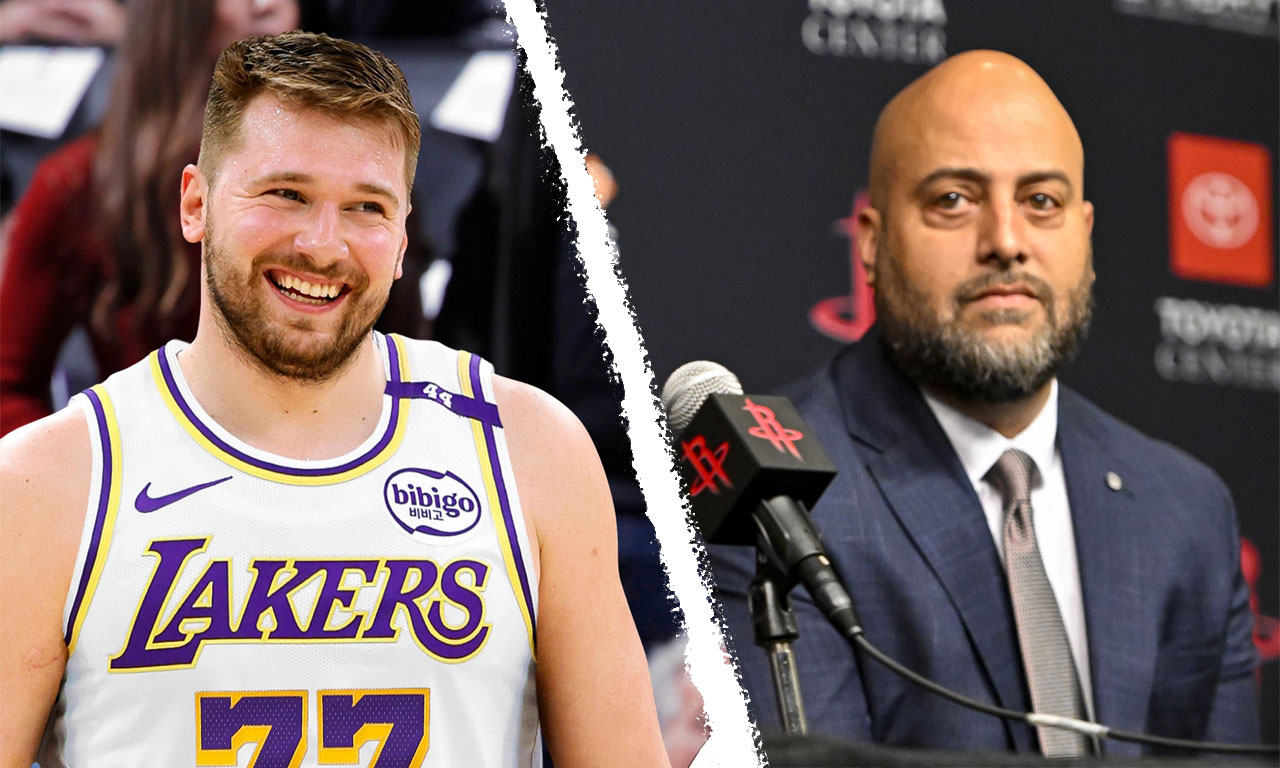Late Saturday night, the Dallas Mavericks traded Luka Doncic to the Los Angeles Lakers for Anthony Davis and a 2029 first-round pick.
I know, it doesn’t seem even remotely real. This is the most shocking sports trade of my lifetime. I can’t think of one bigger nor one more unbelievable.
The Mavericks have to know something about Doncic that we don’t. It’s being reported that his poor conditioning, weight issues and looming supermax contract were the biggest factors, but this is a young phenom who is hypercompetitive. He might very well haunt Dallas for a long time.
It’s an absolutely fascinating move. So how does this impact the Houston Rockets now and in the future?
The first reaction is of course, “Luka Doncic was available?!?” That leads to the inevitable question of why the Rockets didn’t get involved.
The simple answer is they didn’t know. Nobody really did — and it would not have mattered if they did.
This is a classic example of how sometimes in the NBA, it doesn’t matter how big of a treasure trove of assets you have. What matters is having the right single asset. Dallas Mavericks GM Nico Harrison wanted Anthony Davis and that was that. The Rockets, with all their youth and picks, would not have been able to compete for Luka because they couldn’t help Harrison with his goals.
At the same time, this has to be maddening for Rockets GM Rafael Stone and the Houston front office, who have tried to position themselves for just such a trade when it became available. Doncic is 25-years old and was seen as an untouchable top-5 player, a dream target, the kind of player teams fantasize about stealing — yet the Mavericks booted him out of Dallas like a bad tenant in the dead of night. No league-wide bidding war — just unceremoniously traded while 28 other teams sat clueless, never even getting a shot at the prize.
Dallas could have had their pick of top young players and draft choices had they made this an actual competition so this trade will be questioned and second-guessed for many years to come.
There is a silver lining for the Rockets and that’s the control they have on Dallas’ 2029 first-round pick (unprotected).
Dallas traded that pick to Brooklyn in the deal for Kyrie Irving in 2023. Brooklyn gave control of the pick to Houston as part of the deal to get their own picks (2025, 2026) back this past summer. So the Rockets control the best two first-round picks (unprotected) out of Phoenix, Dallas and Houston’s own first in the year 2029.
In this deal, Dallas’ core got older. Irving will turn 37 in the 2028-29 season and Davis will turn 36. This is four years away so a tremendous amount can change between now and then, but on paper it is a strong positive indicator for the value of that pick.
Keep in mind, the Rockets are unlikely to actually use this draft pick — they’re more likely to trade it to strengthen their current roster. So, what actually happens to Dallas four years from now isn’t as important as how teams around the league perceive the value of that pick right now and in the near future.
This looks like a potential win for Stone, Patrick Fertitta and the Rockets front office.
Both the Lakers (currently 5th seed) and Mavericks (currently 8th) are potential first-round matchups for the Rockets this postseason.
Los Angeles: The Lakers may have taken a short-term hit, but if Luka’s conditioning issues can be fixed, this trade completely revitalizes their future. Before this move, Los Angeles was still relying on a 40-year-old LeBron James with no clear path forward, especially with their draft picks already limited. Now, they’ve managed to land Doncic, who put up 33.9 points, 9.8 assists, and 9.2 rebounds per game last season at just 24 years old, in exchange for a 31-year-old Davis. That’s highway robbery.
The NBA just handed the Lakers another superstar lifeline (like Shaquille O’Neal, like Pau Gasol, like Chris “Basketball Reasons” Paul, like LeBron James, like Anthony Davis) and they took full advantage.

But right now, this is an odd fit. The Lakers have no size. More moves have to be on the way here so stay tuned on how the Rockets match up with this squad.
Dallas: Luka had been out for over a month and the Mavericks have been slipping. Dallas says they want to focus on defense and they do get that in Davis. They went from relying on two forces on the perimeter to putting the ball in Kyrie’s hands as the leader and leveraging their size in Davis, Derrick Lively (when he returns healthy) and Daniel Gafford.
The Rockets have excellent perimeter defenders, but their lack of interior rim protection makes it tough to handle Davis and any additional size next to him. This could be a real challenge for Alperen Sengun. While Sengun offensively dominated Gafford in their last matchup, he struggled against Lively — and Davis is on a whole different level.
But can Amen Thompson, Tari Eason and Dillon Brooks take out the head of the snake in Kyrie? Three-point shooting efficiency will likely be the key against Dallas. I think this is a tougher matchup for Houston right now, but long term, I think this really helps the Rockets. We will find out soon as Houston faces the Mavericks (without Lively) this Saturday.
One last potentially positive note to close on: Texas is fertile ground for free agents. No state income tax and warm weather have always been draws for NBA players, so having young superstars like Victor Wembanyama and Luka Doncic playing for your two rivals in the state had the potential to make things problematic when recruiting players trying to win a championship. Dallas loses that draw and becomes a team with a much smaller window… and who wants to live in San Antonio over Houston?

